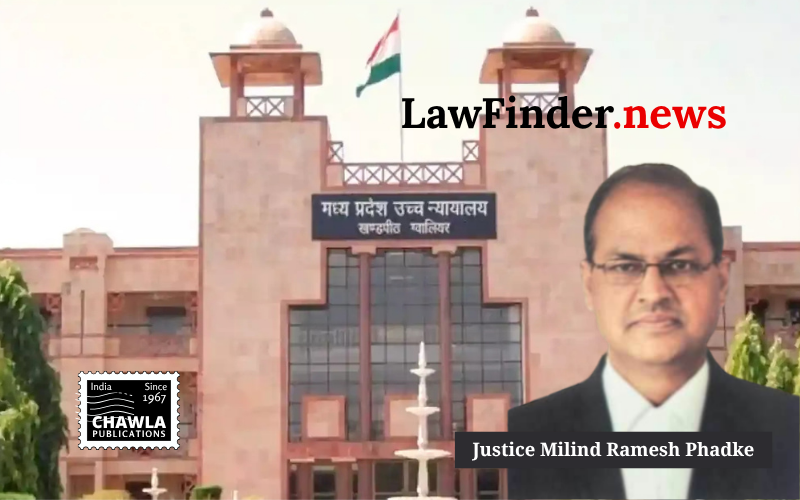Court emphasizes limited judicial intervention in ongoing police investigations, urging prompt completion under CrPC guidelines.
In a significant decision dated September 22, 2025, the Madhya Pradesh High Court, Gwalior Bench, reaffirmed the autonomy of the police in conducting criminal investigations, underscoring the judiciary's limited role in intervening with such processes. Presided over by Justice Milind Ramesh Phadke, the court addressed a petition filed by Adesh Parihar seeking judicial directions for a fair investigation and the filing of a charge sheet in a criminal case registered under crime number 548/2024 at Police Station Janakganj, Gwalior.
The petitioner, represented by counsel Shri R.K.S. Kushwah, contended that despite the registration of the crime, the police had not taken appropriate action. However, the court firmly held that the judiciary cannot supervise or direct the police in investigative matters, as this falls within the exclusive domain of the investigating agency. This stance aligns with the precedent set by the Supreme Court in the case of D. Venkatasubramaniam v. M.K. Mohan Krishnamachari.
The judgment emphasized that under Section 482 of the Code of Criminal Procedure, 1973, the High Court's jurisdiction is to be exercised sparingly and is not intended to influence the course of police investigations. Justice Phadke referenced the statutory obligations under Section 173(1) of the CrPC, which mandates the completion of investigations without unnecessary delay, thereby ensuring that the investigating officer is obliged to conclude investigations promptly and file either a closure report or a charge sheet.
Furthermore, the court highlighted alternative remedies available to the petitioner, such as approaching the concerned Magistrate or Superintendent of Police for redressal of grievances, ensuring adherence to due process.
This ruling reinforces the principle of non-interference by the judiciary in the investigative process while also advocating for the timely completion of investigations, thereby balancing the rights of the accused and the need for efficient law enforcement.
Bottom Line:
The High Court cannot supervise the investigation or direct the police to file a charge sheet as it would amount to interference in the exclusive domain of the investigating agency. The Investigating Officer is obligated to conclude the investigation without unnecessary delay as per Section 173(1) of CrPC.
Statutory provision(s): Code of Criminal Procedure, 1973 Sections 482, 173(1)
Adesh Parihar v. State of Madhya Pradesh, (Madhya Pradesh)(Gwalior) : Law Finder Doc Id # 2787216




